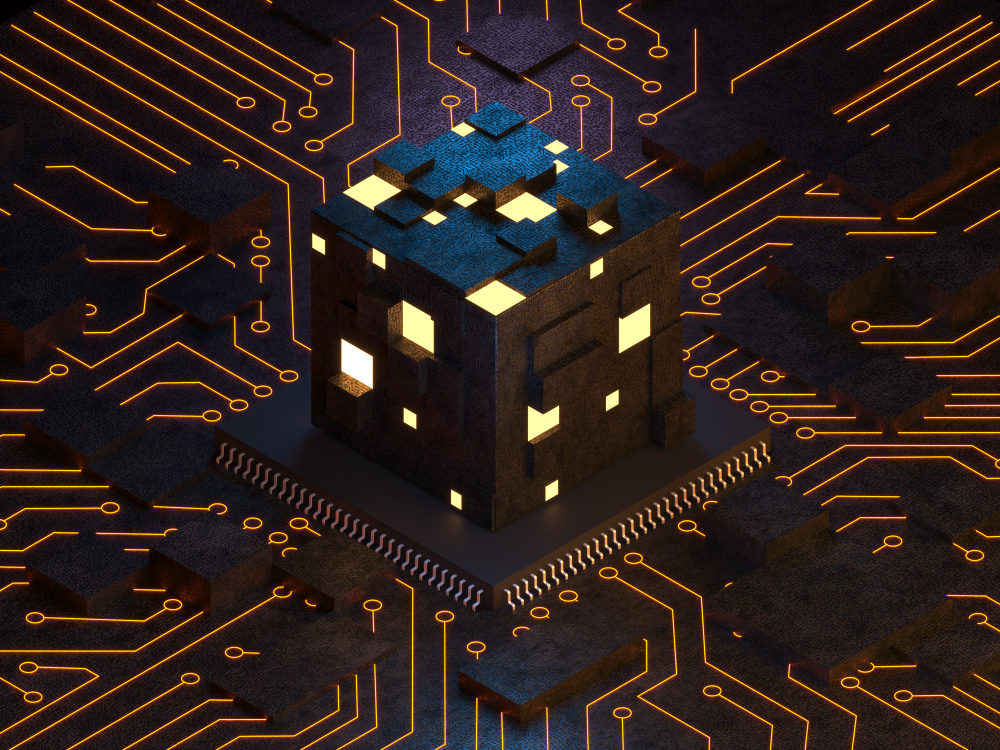Blockchain technology has gained more momentum in recent years due to its power to challenge crucial aspects of traditional finance and provide global use cases. However, despite its innovative solution of eliminating intermediaries in the finance world, the technology would experience a loophole if it’s unable to interact with the outside world.
While blockchain technology fundamentally battles a division crisis between handling on-chain and off-chain data activities, blockchain oracles bridge the gap between both data, therefore making it possible for blockchain applications to access real-world information. So, if you’re wondering what Oracles are in Defi and how they relate to the smart contract, below is an in-depth guide to everything you need to know and more.

What are Blockchain Oracles?
Blockchain oracles are third-party services that serve as a mediator between crypto and the outside world. Oracles provide smart contracts with reliable external data needed to complete blockchain transactions. For example, a decentralized betting app needs data from the outside world to determine game results. So, the dApp can easily execute smart contracts after each match or once the game outcome is available.
Oracles are available in hardware and software, and they continuously transmit data on and from the blockchain network. Although blockchain oracles solve off-chain and on-chain data divisibility problems, the oracle itself is not a data provider but rather queries, validates external data, and then delivers it to or from the blockchain.
Why Blockchain Oracles?
The blockchain itself is decentralized and relies on multiple nodes to process transactions. However, because of its intrinsic nature as a distributed ledger, these nodes can only read authentic or false results obtained from the on-chain data to reach a consensus.
How Do Blockchain Oracles Work?
As mentioned earlier, Oracle bridges the gap between on-chain and off-chain to execute a smart contract.
The on-chain receives requests from several connected smart contracts and passes these requests to off-chain nodes for validity proof. The off-chain nodes then query, authenticate, and extract the data. Afterward, they rewrite the data into a transaction, which makes it easier for the blockchain to read and understand. The transaction then proceeds to the on-chain Oracle contract, which can communicate directly with the major smart contract.
Once the data is finalized, the smart contract instantly executes, and the nodes verify the transaction automatically.
What Are The Different Types of Blockchain Oracles?
Although all Oracles handle on-chain and off-chain relationships through the provision of data authenticity, they carry out their respective tasks in different ways depending on three fundamental factors:
Source of Data: Whether Oracle’s data comes from digital (software) or offline (hardware) sources
Direction of Information: Whether the oracle is receiving data or disseminating data to the outside world
Trust Factor: Whether the oracle is centralized or decentralized
Software and Hardware Oracles
Software Oracle delivers data from digital sources such as websites, databases, or online servers. This type of oracle connects directly to the internet to provide smart contracts with relevant and reliable information in real-time, for example, exchange APIs for current digital asset prices.
Hardware Oracle, on the other hand, helps smart contracts get information from the physical world. It makes use of barcodes, scanners, sensors, and other physical devices to relay information.
Inbound and Outbound Oracles
Oracle’s data flow determines whether validated information is inbound or outbound. Inbound Oracle transmits data from external sources to the smart contract, while outbound Oracle commutes data from the smart contract to an external party, which can either be a third-party app, database, third-party server, or a different blockchain.
Centralized and Decentralized Oracles
A centralized Oracle relies on a single entity and, at the same time, serves as the sole source of information for the smart contract. Although centralized Oracles offer scalability to the blockchain, they also create a potential threat to the technology. This is because the effectiveness of the blockchain is solely dependent on the single-source provider, and if the provider goes offline, the blockchain would be unable to access the latest data. In fewer cases, such an Oracle could transmit invalid data to the contract. However, decentralized Oracles help solve these challenges.
A decentralized Oracle reduces counterparty risks by working with multiple reliable sources to authenticate information. As a result, it provides data feeds to the blockchain without a single point of failure. However, unlike a centralized Oracle, a decentralized Oracle requires several network participants to achieve consensus before creating a smart contract.
Human Oracles
Individual specialists who are vast in a specific sector can serve as Oracles. Such experts leverage their specific knowledge to manually provide data feeds to the blockchain. They are oftentimes specialists in finance, mathematics, and technology who come together to gather information from multiple sources, validate the information, and then convert it into a smart contract for the blockchain to read and process.
Contract-Specific Oracles
A contract-specific Oracle works solely with smart contracts that are single. So, if a developer wants to deploy numerous smart contracts, it would require creating multiple contract-specific Oracles. Although contract-specific Oracles help to complete real-world contracts with the help of blockchain, they are not worth the excess time and financial effort required to keep them up-to-date. Therefore, they are not suitable for recurring events.
Computation Oracles
A Computation Oracle or Compute-Enabled Oracle is a rare type of Oracle that conducts off-chain computation and delivers the proof of the compute solution back into the blockchain. While blockchains like Ethereum are high in computational costs, this type of Oracle computes data off-chain and saves gas fees.
The Oracle Problem
The Oracle problem arises when the smart contract becomes compromised as a result of Oracle’s data feed. Since the smart contract self-executes decisions based on the Oracle’s provided data, once the Oracle itself gets compromised, the smart contracts automatically become compromised as well. Therefore, it results in a loss of privacy and security. However, this often occurs in centralized Oracles, as they serve as a single data source for smart contracts.
As of today, the Oracle problem remains a bristling problem for a centralized Oracle.
Blockchain Oracle Use Cases
Blockchain Oracles play a vital role in providing trustworthy information across several industries, such as:
Defi
Oracles are very essential in the Defi ecosystem. Since blockchain helps eliminate intermediaries and provide financial services through smart contracts, blockchains must connect with the external world. Accurate price feeds, crypto loans, collateral, and buy and sell orders are all feasible features in Defi as a result of blockchain Oracles.
Dynamic NFTs
Aesthetics and dynamics increase the utility of NFTs. Instead of creating a static NFT image, a developer can leverage off-chain data and computation to enable the NFT to interact with the outside world. Dynamics help NFTs build community excitement and boost the perceived value of NFT items through gaming, movies, and other digital entertainment.
Real Estate
Oracles use reliable external data to provide tokenized price feeds, which are accurate property valuations in the real world. They also reduce the hassle of property paperwork by simply allowing property owners to submit legal documents to the smart contract for verification.
Insurance
Blockchain Oracle is likely to disrupt the insurance ecosystem with its innovative solution. With the help of Oracles, users can easily make claims and Oracle automatically verifies such claims using trustworthy external data like weather, car monitors, etc. Once the claim is validated, insurers then pay out claims using smart contract output without any manual work.
Betting
Oracle helps provide the blockchain with reliable data about event outcomes of games such as football matches, horse racing tournaments, racing, boxing, etc. Then, verify the winners and distribute their rewards accordingly using the smart contract.
Examples of Blockchain Oracles
Several Oracles are being used in real-world applications. However, they vary based on their respective use cases. The two commonly used ones are:
Chainlink
Chainlink provides the smart contract with reliable data from external sources to automate blockchain transactions. It makes use of various nodes to authenticate data across multiple data sources and blockchains. After it has validated the integrity of each piece of data, Chainlink collates this data using nodes and then sends it to the smart contract for execution.
Augur
Augur is an Ethereum platform that uses a decentralized Oracle to provide its prediction market benefits. It allows users to place bets on several predictions, such as sports, elections, and financial markets. Then it uses authentic data from the outside world to approve each bet based on the event’s outcome.
Closing Thoughts
Blockchain Oracles are important technological mechanisms crucial for the growth, global evolution, and adoption of blockchain systems. Over the years, this technology has continued to provide blockchain systems with credible external data instead of relying on the data sources within the network. Apart from providing data feeds in industries like sports, gaming, financial markets, etc., the technology aims to provide accurate voting data on smart contracts and capture more emerging markets in the future.
Personal Note From MEXC Team
Check out our MEXC trading page and find out what we have to offer! There are also a ton of interesting articles to get you up to speed with the crypto world. Lastly, join our MEXC Creators project and share your opinion about everything crypto! Happy trading! Learn about interoperability now!
Join MEXC and Get up to $10,000 Bonus!
Sign Up


